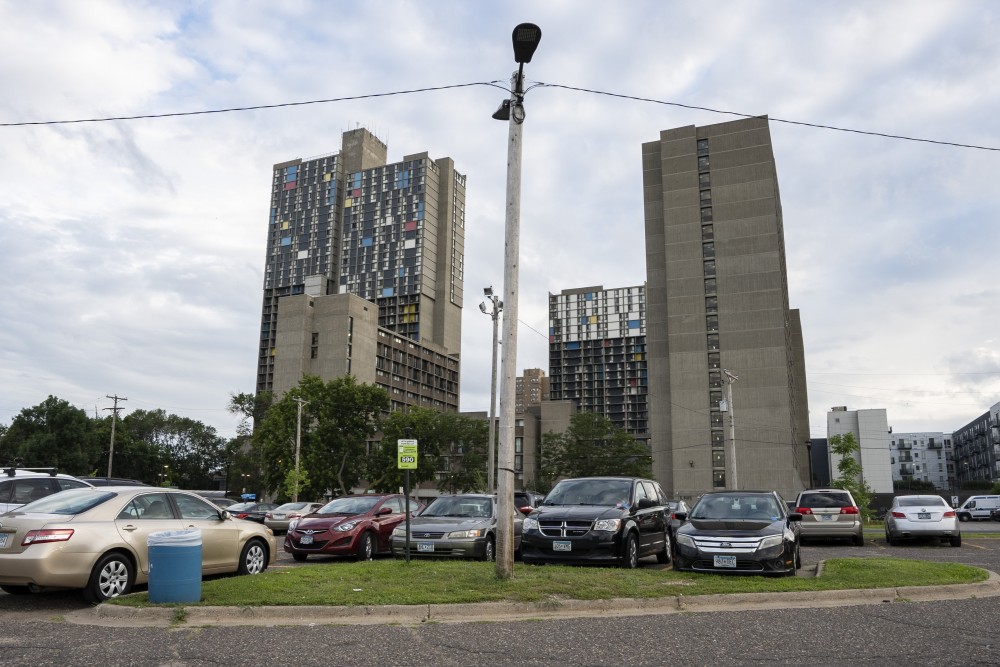Despite concerns from some members of the Cedar-Riverside business community, city officials insist a proposed African market will vitalize the neighborhood, following the lead of other Minneapolis public markets.
Ward 6 City Council member Abdi Warsame and Minneapolis Mayor Jacob Frey announced a proposed Cedar-Riverside public market last month. Warsame disputes fears of gentrification and increased crime, which some in the business community have recently raised. The request for proposal, one of the first steps in the city’s development process, will be issued in August.
Warsame said he hopes to get ahead of the inevitable further development of Cedar-Riverside.
“The idea is to prevent gentrification and also use the culture of the neighborhood. And use it as an advantage to the community,” Warsame said. “I think it’s very important to be intentional about how you develop things.”
The public market is part of a larger vision to turn the area around the namesake crossroads of Cedar and Riverside Avenues into an “Africa Village,” branding the region as a cultural destination, Warsame said. Backed by public marketplace research, he said the market will support neighboring businesses and new entrepreneurs.
The vision includes a small business incubator, a commercial kitchen where vendors can rent space, a farmers market and, if housing is part of finalized design, affordable living units.
“The businesses will be led by the community; … the face of the businesses will be African people that live in this area,” Warsame said.
Some members of the business community said there was a lack of engagement leading up to the announcement of the development, which left them scrambling to be involved in the process. Community members have also said the neighborhood is already too dense, and green space or the already-existing parking should be a greater priority than a market.
“What was really frustrating was that there was a lack of outreach. If it’s a mixed-use space, that could fit with a lot of different needs,” said Jamie Schumacher, executive director of West Bank Business Association. “But … a lot of the community felt like this was dropped on them, and they didn’t have input. And they were told, you know, this is a done deal.”
Warsame has pledged to work with the community throughout the development process.

A president for public markets
The Ward 6 office is taking loose inspiration from Midtown Global Market, a cornerstone public market with various global vendors in the Midtown Phillips neighborhood in South Minneapolis. The global market was a community-led redevelopment project undertaken with the help of various nonprofits in the early to mid-2000s.
Gary Schiff, former Minneapolis City Council member who represented the Midtown area in 2006, said crime fell “remarkably” in the region surrounding the global market in the years after its opening. He said the eclectic mix of tenants in the retail space helped the project’s success.
“They wanted anchor tenants who would be seasoned small business owners, and also have room for startup businesses,” Schiff said. “Between the larger tenants and the smaller tenants, it creates a really vibrant space that then gets mixed with opportunities for music, art and community gathering spaces.”
Similar to the global market, Warsame said he hopes the Cedar-Riverside market’s economic activity is invested back into the neighborhood, building wealth for the community rather than a private developer.
Warsame also said the proposed location’s current use as a city-subsidized parking lot near two light rail stations is a squandered opportunity, adding no value to Cedar-Riverside.
Alfonso Morales, a professor at the University of Wisconsin-Madison and researcher of public marketplaces, said public markets help those with fewer resources to build wealth and carve a place in their community.
But he said community support sours with public markets when they do not meet expectations set forth by those who envision them.
“If you over-promise, right, you’re gonna be in trouble,” Morales said.
Morales said public markets drive traffic to neighboring businesses and have fewer barriers to entry, making them more accessible to entrepreneurs just getting started.
“The marketplaces are where people begin to exercise their imagination. When a person sees a future for themselves, they wonder, ‘Well, how do I move into a brick storefront?’” Morales said. “Instead of having to do all that work, they know they can go to their local farmers market or outdoor market.”














